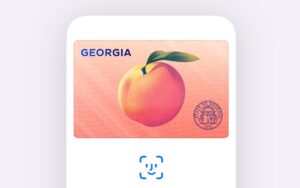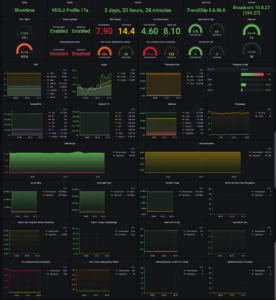Have you ever wondered what the term “blog” really means? If so, you’re not alone. In today’s digital age, blogs have become a cornerstone of online communication and content sharing. They serve as platforms for individuals to express their thoughts, businesses to engage with customers, and experts to share knowledge in specific fields.
Whether you scroll through your favorite website or check social media feeds, chances are you’ve come across a blog post or two. But blogging is more than just ramblings on the internet; it’s an art form that has evolved over time. From personal diaries shared with the world to professional websites offering invaluable insights, blogging has transformed how we connect and communicate.
Curious about its history? Or maybe you’re looking for ways to start your own blog? Dive into this comprehensive guide that will unravel everything there is to know about blogs—from their origins and types to tips for creating engaging content. Get ready; it’s time to explore what blogging truly means!
History and evolution of blogging
The history of blogging dates back to the late 1990s. It began as a way for individuals to share their thoughts online, resembling an online diary.
Early adopters used simple platforms like LiveJournal and Blogspot. These sites allowed people to publish personal entries easily.
As technology advanced, so did blogging. The introduction of RSS feeds enabled readers to follow multiple blogs effortlessly. This feature transformed how content was consumed.
By the early 2000s, businesses recognized the power of blogs for marketing. Companies started incorporating them into their strategies to engage customers and boost SEO rankings.
Social media further revolutionized blogging in the next decade, merging platforms and expanding reach. Today’s bloggers utilize multimedia elements like videos and podcasts alongside traditional text formats, creating diverse content experiences that cater to varied audiences.
Differences between a blog and a website
Blogs and websites serve different purposes, even though they can overlap. A blog is typically a dynamic platform where content is updated frequently. It focuses on posts that are often arranged chronologically, allowing readers to engage with new material regularly.
Websites, on the other hand, are more static. They usually provide information about a business or organization and may not change as often. Content tends to be organized in pages such as “About Us,” “Services,” or “Contact.”
Another key difference lies in interactivity. Blogs encourage reader engagement through comments and sharing options, fostering community discussions. Websites generally have limited interaction focused primarily on providing information.
In essence, if you’re looking for ongoing conversations and updates, a blog suits you well; if it’s steady information you seek, then a traditional website might be your best bet.
Types of blogs: Personal, business, niche, etc
Blogs come in various formats, each catering to different interests and audiences.
Personal blogs are a popular choice for individuals sharing experiences, thoughts, or passions. They often reflect the writer’s personality and can cover anything from travel stories to lifestyle tips.
Business blogs focus on promoting brands and engaging customers. These platforms provide valuable information about products or services while establishing expertise in a specific industry.
Niche blogs zero in on particular topics like health, technology, fashion, or cooking. By targeting specific interests, they attract dedicated followers eager for specialized content.
Other types include collaborative blogs where multiple writers contribute their perspectives. Educational blogs aim to inform readers about academic subjects or skills through tutorials and resources.
Each blog type offers unique opportunities for creativity and connection with an audience that resonates with its message.
Advantages of starting a blog
Starting a blog offers countless benefits that can transform your life and career. One key advantage is the ability to express yourself freely. It’s a platform where your voice matters, allowing you to share thoughts, experiences, and expertise.
Blogging also fosters connections. You can engage with like-minded individuals who share similar passions or interests. This sense of community can be fulfilling both personally and professionally.
Moreover, blogs enhance your writing skills over time. Regular practice improves clarity and creativity while boosting confidence in communication.
From an economic perspective, blogging opens doors for potential income streams through advertising or affiliate marketing. You create opportunities simply by sharing what you love.
It helps build credibility in your niche. As you provide valuable content consistently, readers begin to see you as an authority figure within that domain.
How to start a blog in 5 easy steps
Starting a blog can feel daunting, but it doesn’t have to be. Follow these five simple steps to get your voice out there.
First, choose a niche that excites you. Passion fuels creativity and keeps readers engaged.
Next, select a blogging platform like WordPress or Blogger. These user-friendly options make setup easy for beginners.
Then pick a domain name that reflects your brand. Keep it memorable and relevant to your content.
Once you’ve secured your domain, choose a hosting provider. This is where all your blog content will live online.
Design your blog using templates or custom designs that resonate with you. A visually appealing layout attracts visitors and enhances their experience on your site.
Tips for creating successful and engaging blog content
Creating engaging blog content starts with understanding your audience. Know their interests, pain points, and what they seek. This knowledge allows you to tailor your topics effectively.
Use catchy headlines to draw readers in. A compelling title piques curiosity and encourages clicks. Don’t underestimate the power of a good hook at the beginning of your posts.
Visual elements enhance engagement significantly. Incorporate images, infographics, or videos related to your topic. They break up text and make reading more enjoyable.
Keep paragraphs short and sentences concise for better readability. Use bullet points or numbered lists when possible; they help convey information clearly.
Encourage interaction by asking questions within your posts. Invite comments or feedback to foster a community around your blog.
Always proofread before publishing! Errors can distract from valuable content and diminish credibility.
Monetizing your blog: Different ways to make money through blogging
Monetizing your blog can open up exciting opportunities. There are several methods you can explore.
Affiliate marketing is a popular choice. By promoting products relevant to your audience, you earn a commission on each sale made through your links.
Sponsored posts allow brands to reach your readers directly. Companies pay you to create content featuring their products or services, which can be mutually beneficial.
Ad networks like Google AdSense provide another avenue. You place ads on your site and earn money based on clicks or impressions.
Selling digital products such as eBooks or online courses offers great potential for profit. Your expertise becomes an asset that others are willing to purchase.
Consider offering consulting or coaching services if you have specialized knowledge in a particular field. Engaging with clients one-on-one creates valuable connections while generating income.
Common blogging mistakes to avoid
Many new bloggers fall into the trap of neglecting their audience. It’s essential to understand who you’re writing for and tailor your content to meet their needs.
Another common mistake is inconsistent posting. Readers lose interest when they don’t know when to expect new content. Establish a schedule that works for you, and stick to it.
Ignoring SEO can also hinder growth. Use relevant keywords naturally within your posts to help search engines find your blog.
Additionally, overloading posts with ads or affiliate links can drive readers away. Balance monetization efforts with providing valuable information.
Failing to engage with your audience is a missed opportunity. Responding to comments and messages fosters community and encourages more interaction on your blog. Embrace feedback; it’s crucial for improvement!
The future of blogging
The future of blogging is bright, with continuous advancements in technology and shifts in user behavior. As more people turn to the internet for information, connection, and entertainment, blogs will remain a key player in the digital landscape.
Emerging trends indicate that video content integrated into blogs may become increasingly popular. This hybrid approach combines visual storytelling with traditional written formats to enhance engagement. Additionally, interactive elements like polls or quizzes are likely to play a larger role in capturing readers’ attention.
As social media continues to evolve, so does its relationship with blogging. Influencers are leveraging their platforms not just for promotional content but as gateways to deeper discussions through blog posts. This symbiotic relationship will enable bloggers to reach wider audiences while providing value-added content.
Moreover, the focus on niche topics will grow stronger. Readers are looking for specific insights tailored to their interests rather than generic information. Bloggers who carve out unique spaces can build loyal communities around shared passions.
SEO practices will also transform as search engines adapt their algorithms based on user intent and experience. Understanding these changes will be vital for bloggers aiming for visibility amidst increasing competition.
Mobile optimization remains crucial as users access blogs from various devices. A seamless experience across smartphones and tablets ensures that content reaches audiences wherever they are.
Innovation and creativity within this medium promise exciting opportunities ahead. The essence of what it means to blog may shift over time; however, the core purpose—connecting people through stories—will always endure.




